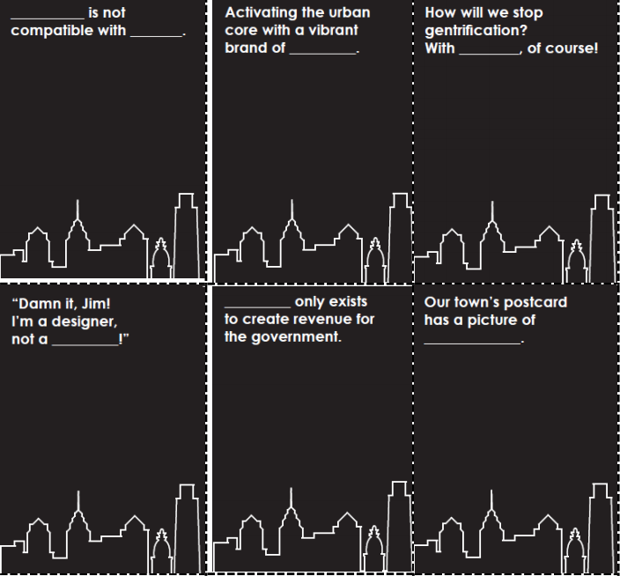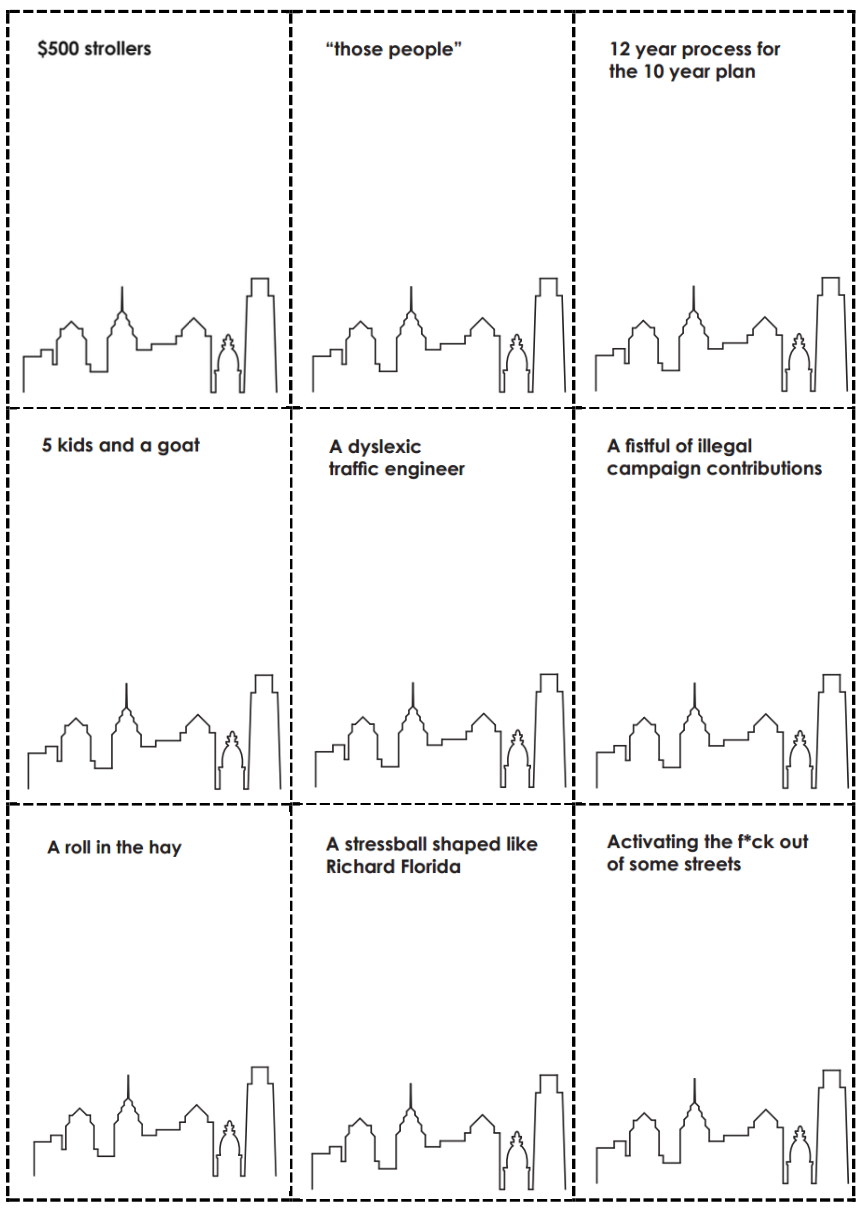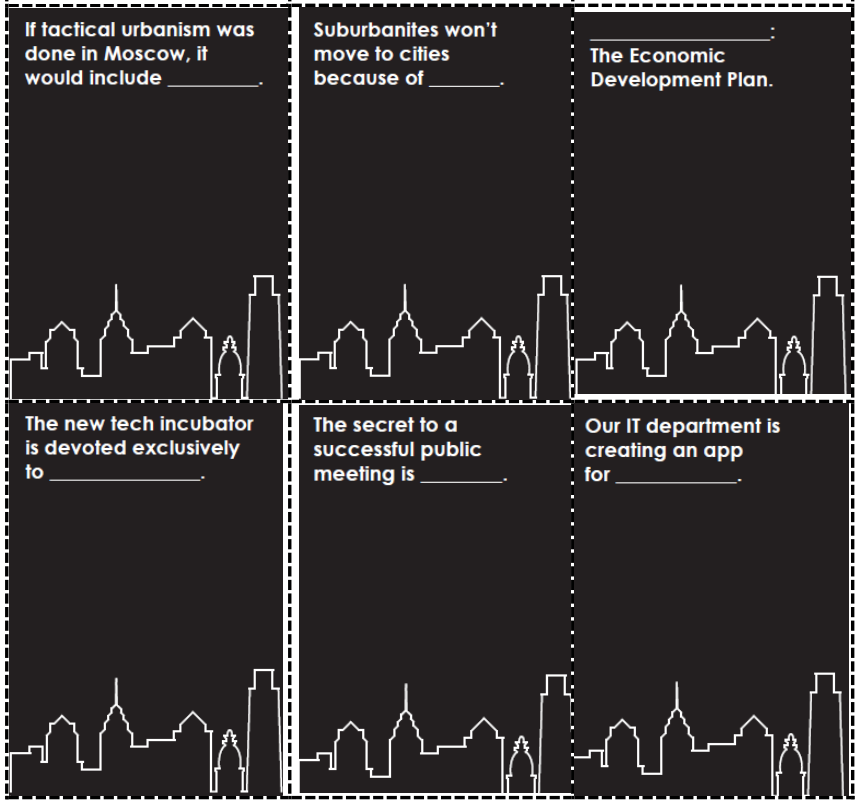Games for Cities
Cards Against Urbanity (2016)
Washington [US]
Developed by:
A card game where players must insert the missing word from a sentence, involving learning through laughter from start to finish

A spinoff of the cheeky bar game Cards Against Humanity, but with an urban twist. Each player is dealt 5 cards and it’s a game in ‘completing the sentence’. Everybody has fun and has a few laughs, and if it matters to you, you can keep score. This is where Cards Against Humanity ends, aside from making light of otherwise serious issues and rearranging our frustration in a funny way. Keeping the fun elements of this game, but adapting it to include urban planning jargon and concepts, means that players frequently are unsure of what is meant on their’s or others’ cards. Due to the lack of competitiveness in this game, players commonly resolve this either through explaining to one another, or by doing a quick search on their phones. There is also a printable “cardsplanation” document to clarify all the terms.
Thus, the game has real educative potential. Besides being fun for professionals, it teaches people outside the trade about planning concepts—which sometimes very much affect their communities. Designed by a tactical-urbanism group composed mostly of city-design professionals who were bored and frustrated with drawn-out, self-serious planning processes. The team realised that a game might bring some badly needed lightness to planning projects, or at least to the profession.
The desire was to engage people in planning with an educational system that’s different from Powerpoint, educating through game-experiencing. Essentially, Cards Against Urbanity players are educating each other about urban planning through in-jokes. One potential of this knowledge transfer is that people who play the game, may be able to understand more at public participation gatherings and communicate with experts in the professional lingo learnt.
That educational aspect is what led the card-makers to their next project. Their next collaboration is to design a pack of ‘City Design Method Cards’ – each with clear descriptions and visuals of urban design terms, methods, and solutions. While these could be used by professionals to help organise thoughts, or by community stakeholders to learn, the ambition is that the cards provide a common language and source of ideas to bring these two parties together. They’ll be portable, easily legible, and even customisable to specific communities and projects. Game designers believe that the cards could prove to be a valuable resource for non-profits already engaged in civic activism and planning, who could use them as support tools within communities.

